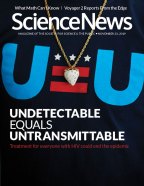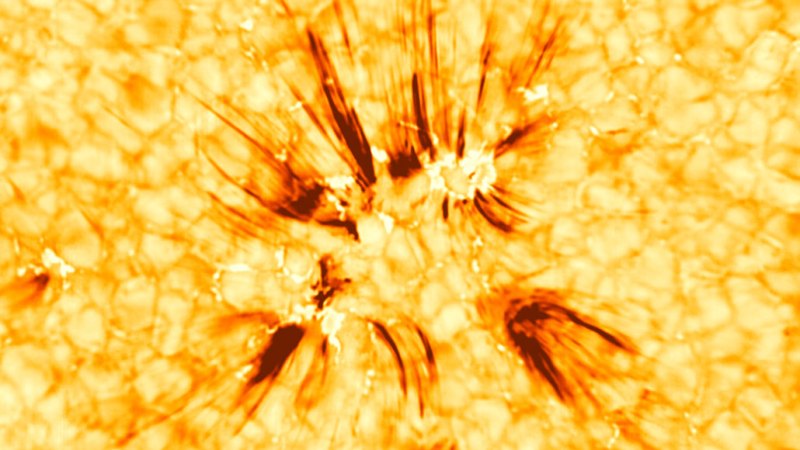Readers comment on penguin sex, math and more

Math whiz
In “How Julia Robinson helped define the limits of mathematical knowledge” (SN: 11/23/19, p. 22), Evelyn Lamb examined the life and career of mathematician Julia Robinson, who helped redefine the limits of mathematical knowledge.
Readers had a lot to say about the story.
“I found your article inspiring; it was really well written. I particularly liked the graphics, which helped my understanding a lot,” reader Richard Purser wrote. “It has been my (unfortunate) experience that young women are socialized that they are ‘less than’ with regards to math. This story shows that to be a lie.” Reader Luis Villarruel echoed Purser’s comment and requested more profiles of women who contributed to STEM breakthroughs but were not widely acknowledged.
Reader Lenore Blum was pleased by an illustration of Robinson featured in the story. “I knew Julia from the time I went to Berkeley as a postdoc in 1968 until her death in 1985,” Blum wrote. The illustration by Anna and Elena Balbusso “captures perfectly her impish smile and her sense of herself,” Blum wrote. She believes Robinson would have been “honored and delighted” by the portrait.
Reader Mike Dudzik found a particular portion of the story humorous. “When I got to the part describing that earlier this fall, two mathematicians had ‘used a mix of clever algorithms and a powerful supercomputer’ to find a solution to the Diophantine equation involving 42 … a hearty laugh welled up inside me,” Dudzik wrote. “They had found the answer to the ultimate question of life, the universe and everything (42)! Was the supercomputer named ‘Deep Thought’ ?” he wrote, referring to the science fiction series The Hitchhiker’s Guide to the Galaxy. “Douglas Adams would be pleased.”

Choice words
A Polar Affair recounts a nearly centurylong cover-up of Adélie penguins’ “dirty” sexual behaviors, Carolyn Gramling reported in “‘A Polar Affair’ delves into a centurylong cover-up of penguin sex” (SN: 12/7/19, p. 26).
“I must object to using the word ‘dirty’ when describing the sexual behaviors of these fascinating animals,” reader Michelle Ashkin wrote. “This is not dirty behavior. It is simply a natural behavior, and we need not ascribe our values to it,” Ashkin wrote. “Please be aware that words have a lot of impact. And how we use them shapes readers’ thoughts and opinions.”
It was the book’s author, penguin biologist Lloyd Spencer Davis, who used the word “dirty” in reference to the penguins’ promiscuity and infidelity, Gramling says. “Davis was not himself intending to place a moral judgment on those observations,” she says. He described the sexual behaviors sans judgment in scientific papers several decades earlier. “In A Polar Affair, he used that language ironically to highlight a major theme of the book, which is at its core a meditation on a strange case of scientific information being suppressed by misplaced moral judgment,” Gramling says. “It should be noted that this particular quote was one of the milder ways in which Davis mocks that sort of judgment, so caveat emptor!”
Correction
“2019 brought us the first image of a black hole. A movie may be next” (SN: 12/21/19 & 1/4/20, p. 22) incorrectly stated that the black hole at the center of galaxy M87 is 1,000 times as massive as Sagittarius A*, the black hole at the center of the Milky Way. M87’s black hole is about 1,600 times as massive as Sgr A*.
Amber waves of plasma
The realignment of the sun’s magnetic fields may form plasma jets (dark structures in the image below) that “undulate like a wind-whipped field of wheat” in a layer of the solar atmosphere called the chromosphere, Christopher Crockett reported in “Realigning magnetic fields may drive the sun’s spiky plasma tendrils” (SN: 12/7/19, p. 14). Twitter user @RadioPirate99 found thedescription of the jets enchanting, adding: “A ‘wind-whipped field of wheat’ is commonly known as ‘wind wolves.’ ” The idea of a pack of wolves “rambling through the chromosphere is fantastically picturesque.
